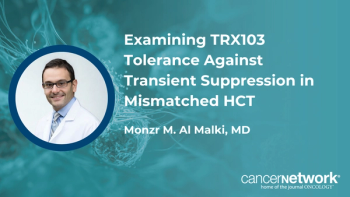
Mark Pegram, MD, Discusses Major Takeaways From the IDEAL Trial in HR+ Breast Cancer
Mark Pegram, MD, spoke the most important data from the IDEAL trial he believes his colleagues should take away.
CancerNetwork® spoke with Mark Pegram, MD, Suzy Yuan-Huey Hung Endowed Professor of Medical Oncology at Stanford University School of Medicine at
Transcript:
There are still many in practice who would automatically assume that the higher clinical risk patients that have a high-stage, high-grade adverse prognostic factors must somehow benefit from a longer duration of endocrine therapy compared to somebody with a small stage 1, estrogen receptor–positive breast cancer. That paradigm is now challenged by the BCI [Breast Cancer Index] data, not just in the IDEAL trial but in the Trans-aTTom translational analysis, which is reminiscent of the IDEAL trial data, the Stockholm trial, and MA.17, where the BCI showed that biology probably trumps prognostication in terms of prediction of extended adjuvant endocrine therapy benefit.2 This is a lesson to be learned in the clinic, that it’s not always stage, grade, and lymph node status that determine patient outcomes, but more sophisticated ways of measuring the biology of the tumors and their likelihood of response to our available effective therapies.
References
- Liefers G-J, Noordhoek I, Putter H, et al. Predictive performance of breast cancer index (BCI) and clinical treatment score post-5 years (CTS5) in the IDEAL study. J Clin Oncol. 2022;40(suppl 16):545. doi:10.1200/JCO.2022.40.16_suppl.545
- Bartlett JMS, Sgroi DC, Treuner K, et al. Breast Cancer Index Is a Predictive Biomarker of Treatment Benefit and Outcome from Extended Tamoxifen Therapy: Final Analysis of the Trans-aTTom Study. Clin Cancer Res. 2022;28(9):1871-1880. doi:10.1158/1078-0432.CCR-21-3385
Newsletter
Stay up to date on recent advances in the multidisciplinary approach to cancer.










































